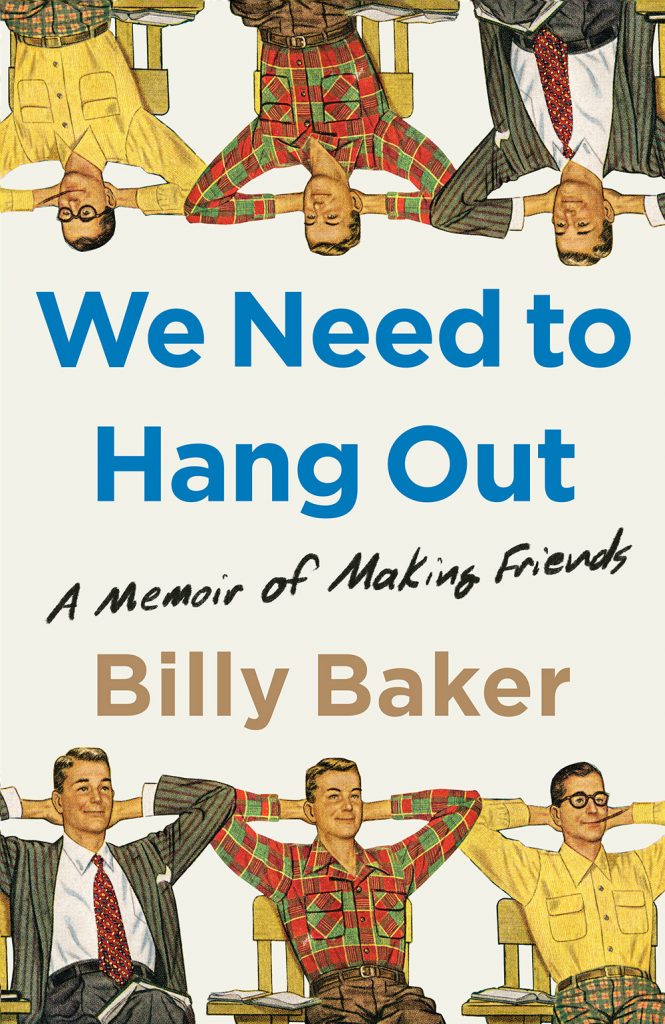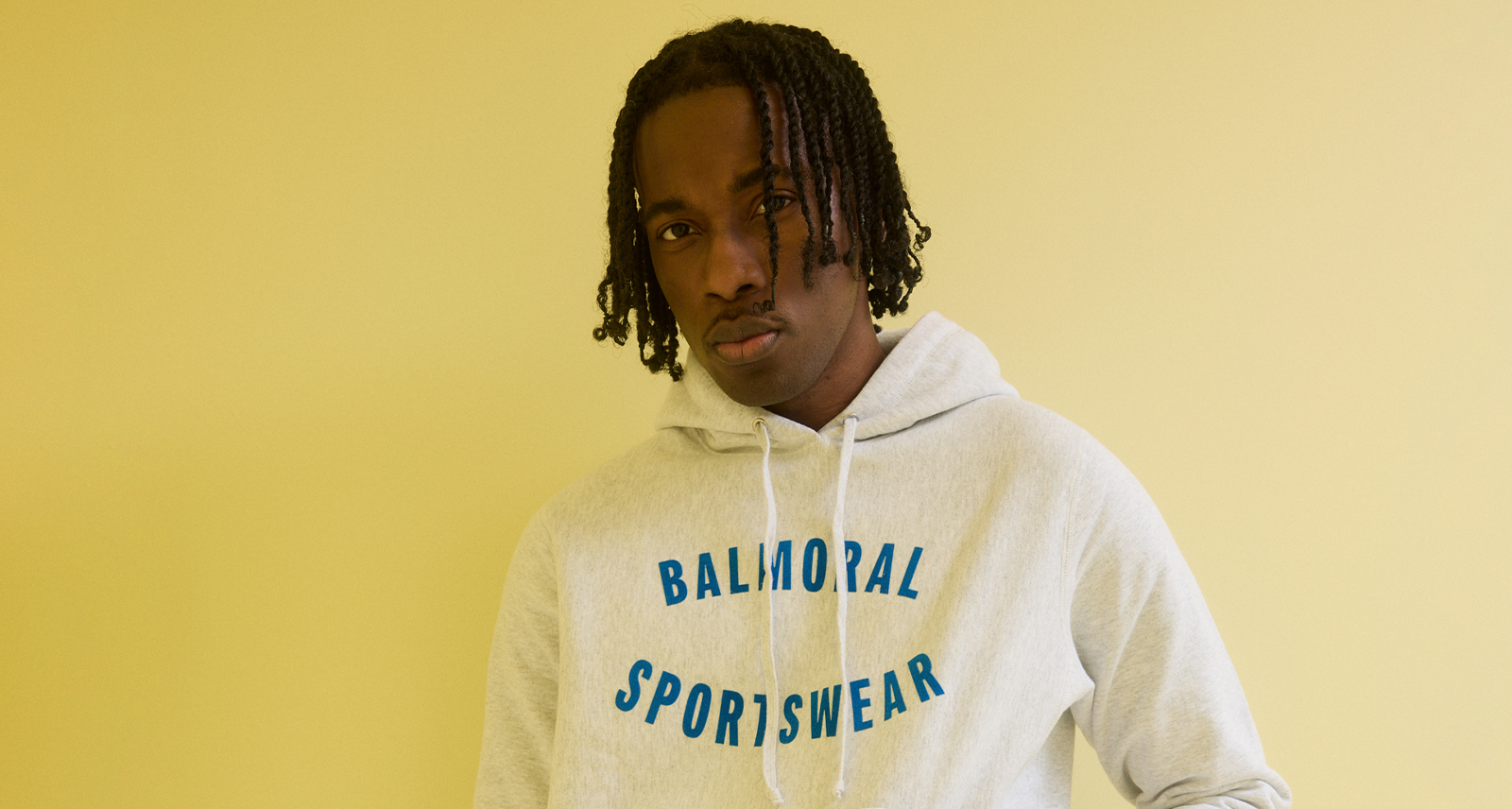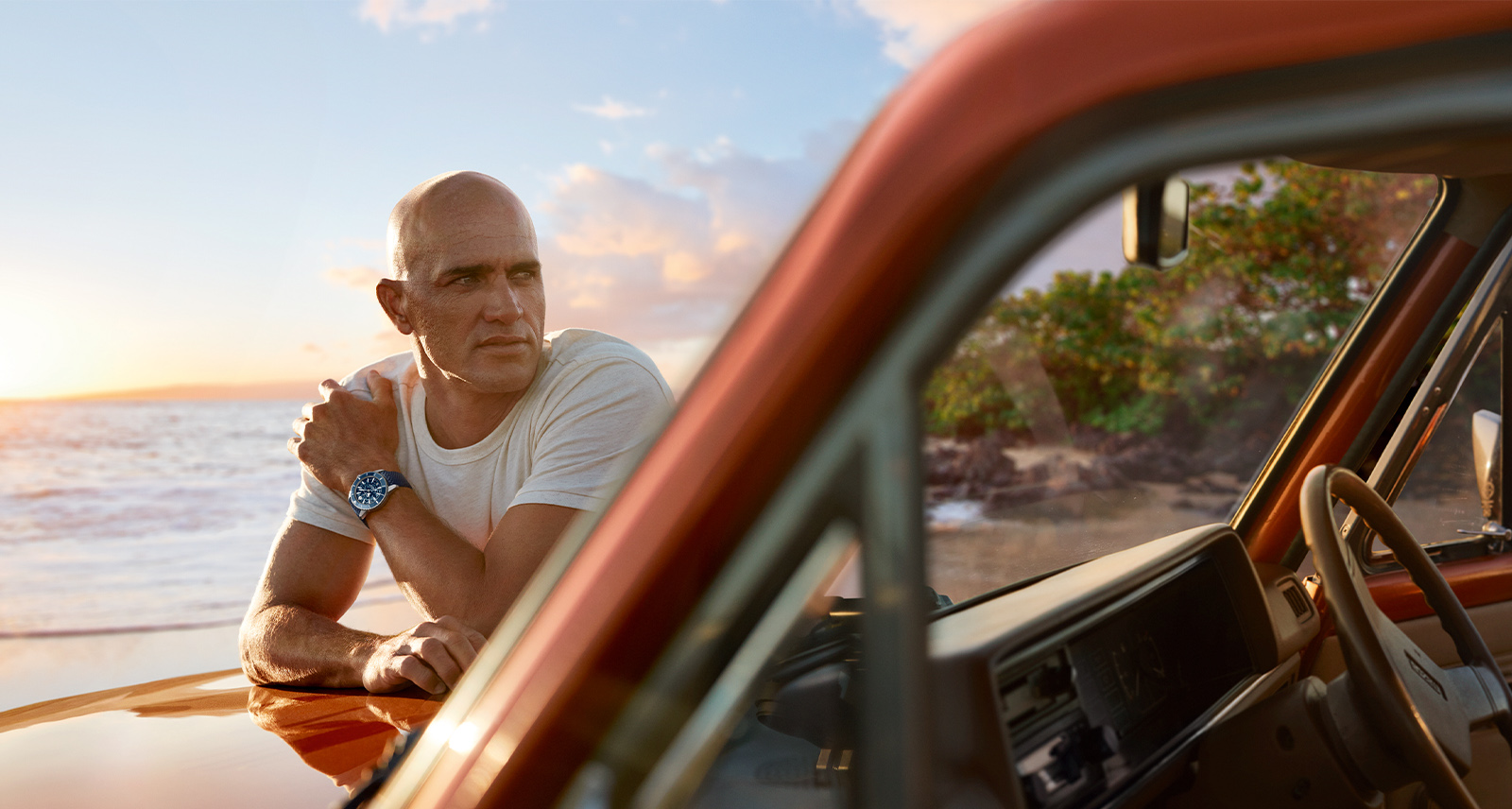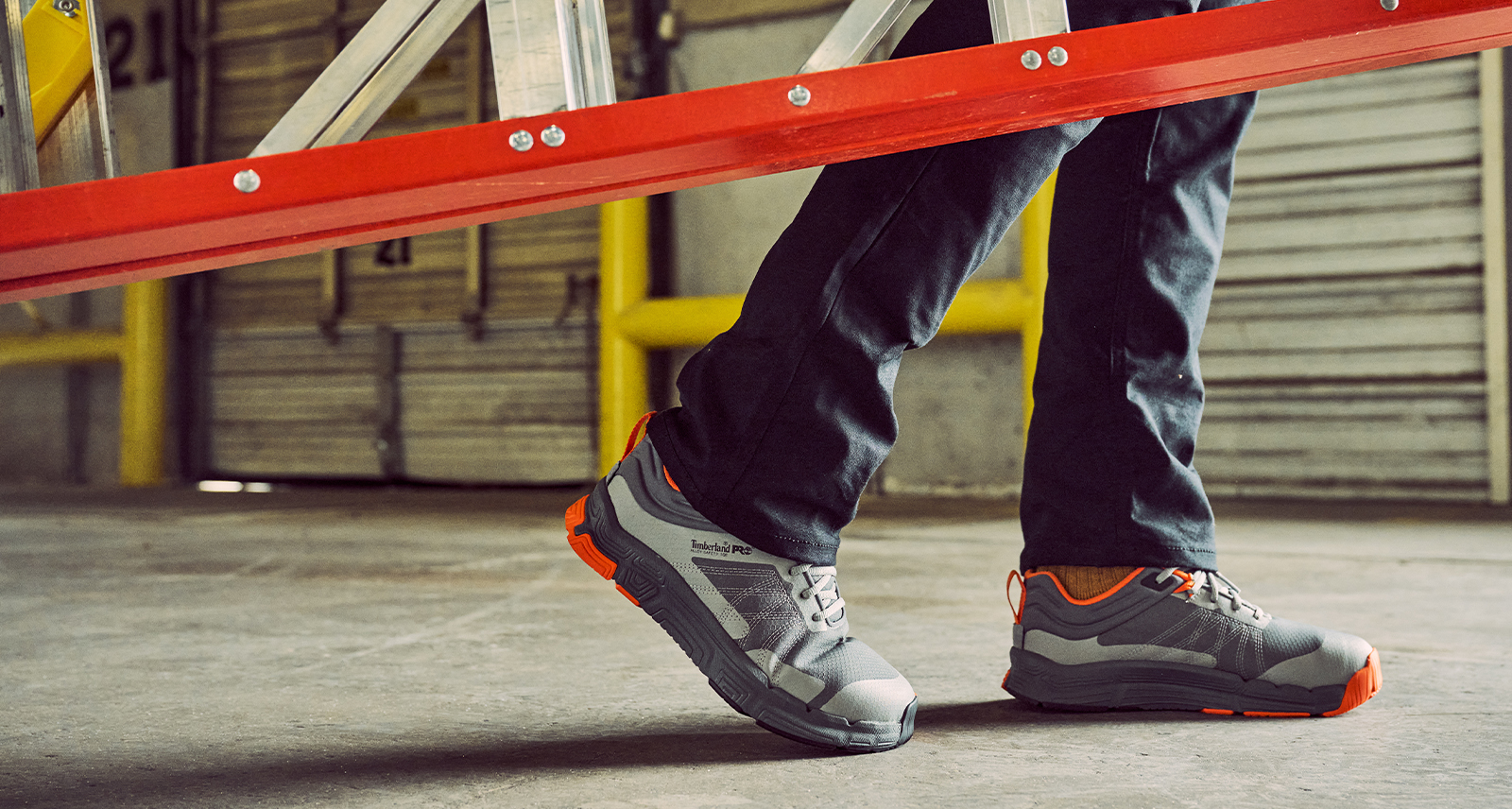Excerpt: Billy Baker’s ‘We Need to Hang Out: A Memoir of Making Friends’
Let’s start with the moment I realized I was already a loser, which was just after I was more or less told that I was destined to become one.
I had been summoned to a magazine editor’s office with one of the oldest lies in journalism: “We have a story we think you’d be perfect for.” This is how editors talk when they’re about to try to con you into doing something you won’t want to do. The lie remains in circulation because it works well on the right sort of ego.
Which is precisely how yours truly found himself rising from his desk in the City Room of the old Boston Globe building to make the winding walk to the other end of the compound, back to where they kept the people who made the Sunday magazine. I knocked at the door of the offending editor, plopped down in achair across from his desk, and told him to lay it on me.

“We want you to write about how middle-aged men have no friends,” he said.
Excuse me, pal?
He didn’t wait for a response, and moved quickly through his argument, flipping through papers on his desk and windows on his computer as he laid out the evidence for his thesis: There was a crisis in modern friendship, and it was having a catastrophic effect on mental and physical health.
I have plenty of friends, buddy. Are you calling me a loser? You are. Also, did you just call me middle-aged?
He paid no attention to the fact that my face was clearly torn between wanting to fight and wanting to cry and arrived at his big finale, one of the most time-tested lies in all of journalism.
“You’ll have fun with it!” he said.
Finally, silence signaled that it was my turn to talk, but I had no good answer to his pitch. I was only just beginning to process the question.
“I’ll think about it,” I told the editor. This is how reporters talk when they’re trying to get out of something they don’t want to do.
As I slunk back to my desk, I ran a quick mental roll call just to confirm that I was not, in fact, perfect for this story of loneliness.
First off, there was my buddy Mark. We went to high school together, and we still talked all the time, and wehung out all the . . .
Wait, how often did we actually hang out? Maybe four or five times a year? Maybe less?
Then there was my other best friend from high school, Rory . . .
I genuinely could not remember the last time I’d seen Rory.
Had it been a year? Entirely possible.
Then there was my brother, Jack, but he had moved to Cali- fornia after college and we were lucky if we saw each other twice a year.
I continued down the mental list, racing through my good friends, my great friends, my lifelong friends, the people who sure as shit better show up at my funeral. Most of them felt like they were still in my life, but why? Because I knew what their kids looked like from Facebook? It had been years since I’d last seen most of them. Decades for a few. How can days feel so long but years feel so short?
By the time I made it back to my desk chair, the waves of disap- pointment were already washing over me, and I knew that anger would be close behind.
That editor was right. I was indeed perfect for this story. Not because I was unusual in any way, but because I was painfully typical.
And if that stupid editor had his facts straight, it meant I was heading down a dangerous path.
I’d turned forty the previous year. I had a wife and two young boys, and we had recently purchased a fairly ugly home with alu-minum siding in a small coastal town about an hour north of the city. In our driveway were two aging station wagons with crushed Goldfish crackers serving as floor mats. When I stepped on a Lego in the middle of the night on the way to the bathroom, I told my- self it was cute that I’d turned into a sitcom dad.
During the week, much of my waking life revolved around work. Or getting ready for work. Or driving to work. Or driving home from work. Or texting my wife to tell her I was going to be late getting home from work.
Yes, I had friends at work, but those were accidents of proxim- ity. I rarely saw those people anywhere outside of the office.
Most of everything else revolved around my children. I spent a lot of time asking them where their shoes were, and they spent a lot of time asking me when they could have some “Dada time.” Each time I heard that phrase, it melted my heart and paralyzed me with guilt, for they tended to ask for it in mo- ments when they sensed I couldn’t give it to them—when I was distracted by an email on my phone, or holed up in the spare bedroom hammering out a story on deadline, or dealing with the constant, boring logistics of running a home.
We could usually squeeze in an hour of “Dada time” before bed—mostly wrestling or reading books—and I was pretty good about squeezing in an hour of “me time” each day, which usually meant getting up before dawn to go to the gym or for a run before it was time to begin looking for my kids’ shoes.
But when you added everything up, there was no real “friend time” left. Without even realizing it, I had structured myself into being a loser.
“You should use this story as a call to do something about it.”
That’s Richard Schwartz. He’s a psychiatrist, and I had called him because my editor told me to call him. I’m a first-ballot hall- of-famer when it comes to avoiding unflattering reflections, so talking to a shrink was not at the top of the list of things I wanted to do at the moment. But Schwartz was a local Boston guy who had written a book with his wife, Dr. Jacqueline Olds, called The Lonely American: Drifting Apart in the Twenty-First Century, which I found shelved in the “Body & Soul” section at the library. Reluc- tantly, I rang him up.
Schwartz seemed like a good dude, and he quickly came to two easy conclusions about me: My story was very typical, and my story was very dangerous.
When people become over-scheduled, he told me, they don’t shortchange their kids or their careers. No, they shortchange their friendships. “And the public health dangers of that are incredibly clear,” Schwartz said withappropriate gravitas.
Beginning in the 1980s, study after study started to show that people who were socially isolated from their friends—regardless of how healthy their family lives were—proved far more suscep-tible to a massive list of health problems, and were far more likely to die during a given period than their socially connected peers. And this was after correcting for things like age and gender and lifestyle choices.
Loneliness kills. And in the twenty-first century, by any reason- able measure, loneliness has become an epidemic.
“Loneliness” is a subjective state, where the distress you feel comes from the discrepancy between the social connections you desire and the social connections you actually have. That’s not a very high bar. That sounds a lot like me. That sounds a lot like everyone.
You can feel lonely when you are alone. But you can also feel lonely in a crowd. However loneliness arrives, its consequences are terrible. Name a health condition you don’t want and there’s a study linking it to loneliness. Diabetes. Obesity. Alzheimer’s. Heart disease. Cancer. One study found that in terms of damage to your health, loneliness was the equivalent of smoking 15 ciga-rettes a day.
Now consider that a 2019 survey found that 61 percent of Americans are measurably lonely, based on how theys cored on the UCLA Loneliness Scale, the gold standard for decades. That percentage had jumped seven points from just the previous year. And according to a large study conducted by the AARP, more than 42 million Americans over the age of 45 suffer from “chronic lone-liness.”
It gets worse. A massive study by Brigham Young University, using data from 3.5 million people collected over 35 years, found that individuals who suffered from loneliness, isolation, or even those who simply lived alone saw their risk of premature death rise by up to 32 percent.
More people live alone today than at any point in human history. In the United States, 27 percent of households aresingle-person. In 1970, that number was 17 percent. For older Americans, those numbers are even higher. Nearly a third of people above the age of 65 live alone. By age 86, the percentage has jumped to half.
While loneliness clearly poses a gigantic issue in our society, Schwartz told me, dealing with it is extremely difficult for one simple reason: No one wants to admit that they’re lonely.
“Since my wife and I have written about loneliness and social isolation, we see a fair number of people for whom this is a big problem,” Schwartz said. “But very often, they don’t come in say- ing they’re lonely. Most people have the experience you had in your editor’s office—admitting you’re lonely feels very much like admitting you’re a loser. Psychiatry has worked hard to destigma- tize things like depression, and to a large part it has been success- ful. Peopleare comfortable saying they’re depressed. But they’re not comfortable saying they’re lonely, because you’re the kid sit-ting alone in the cafeteria.”
I’ve never been that kid. I’m gregarious and outgoing. I’ve never had trouble making friends. I’m fairly good aboutkeeping in touch. Or at least I comment on their Facebook posts, and they comment on mine.
My wife and I got together with other couples every now and again. And I’d even gone on a few “guy dates” with neweracquain-tances I’d met through my kids or on an assignment or wherever. But all too often those seemed to be one and done. We’d go grab a couple beers, and then spend those beers talking about how we’re over-scheduled and never get to do things like this, while vaguely making plans to do something again, though we both know it will probably never happen. It’s a polite way of kicking the ball down the road but never into the goal. I like you. You like me. Is that enough? Is this what passes for friendship at this stage in life?
Schwartz had convinced me of many things in our conversa- tion, but he had failed to get me to admit that I was lonely. Nope, not me. I was simply a textbook case of the silent majority of people who won’t admit they’re starved for friendship, even if all signs point to the contrary.










